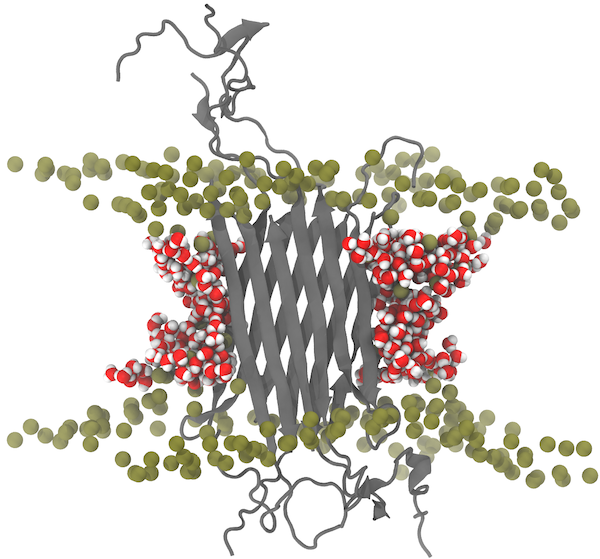Highlights of our Work
2024 | 2023 | 2022 | 2021 | 2020 | 2019 | 2018 | 2017 | 2016 | 2015 | 2014 | 2013 | 2012 | 2011 | 2010 | 2009 | 2008 | 2007 | 2006 | 2005 | 2004 | 2003 | 2002 | 2001
Alzheimer's disease (AD) causes slow and inescapable depletion of neurons in the brain, which leads to the characteristic loss of memory and cognitive function. At a molecular level, AD is caused by aggregation of amyloid-beta (Aβ) protein, however the exact mode of toxicity has remained elusive and highly debated. Inspired by a novel atomic structure of Aβ, and complementary experiments and simulations with NAMD, we report a new mechanism of toxicity for Aβ aggregates. The simulations reveal that Aβ aggregates can perforate the membranes of neurons, compromise their integrity, and consequently trigger their death via the formation of water pores in them. Read more in Nature Communications.




